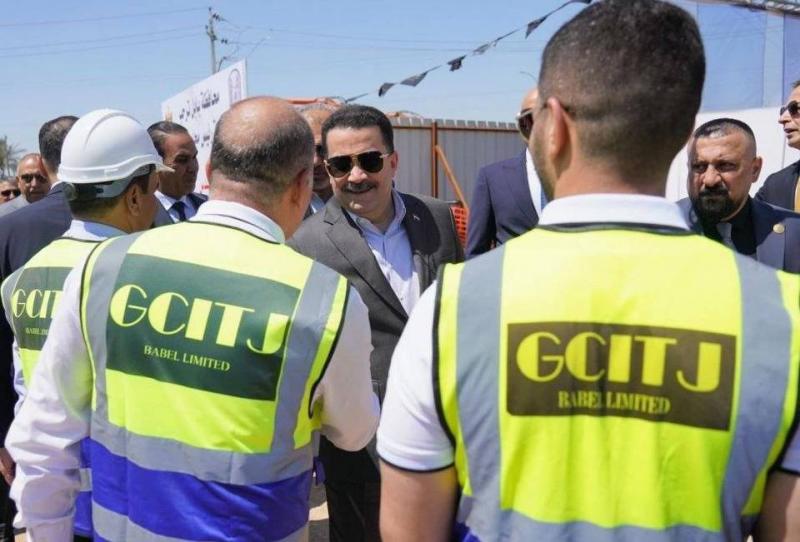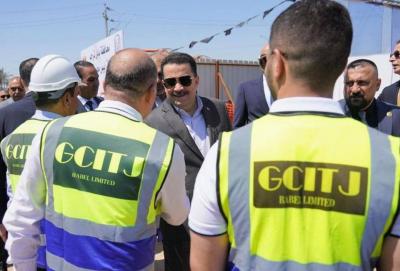Iraqi Prime Minister Mohammed Shia al-Sudani issued directives today, Thursday, regarding the implementation of the large Hilla sewage project, emphasizing adherence to engineering specifications and working around the clock with multiple shifts. According to a statement received by the Iraqi News Agency (INA) from the Prime Minister's office, "Prime Minister Mohammed Shia al-Sudani visited Babil Governorate and announced that the second phase of the large Hilla sewage project has been referred to implementation, with a cost of $287 million."
During a field visit, the Prime Minister monitored "the progress of the first phase of the project." He confirmed that "the visit aims to follow up on infrastructure projects, including sewage and drainage projects that are facing delays in Hilla." He added that "the decision was made in the Cabinet to complete a project that had suffered from low completion rates during its first phase and took a long time."
He noted that “the project’s first phase requires cooperation from all sectoral entities and the local government since excavation work may reach 15 meters and 9 meters for the networks and pipe installation, in addition to installing stations and extending potable water networks, which is a large operation. Thus, the plan focused on completing the sewage requirements in neighborhoods along with all related aspects and restoring the roads."
He stressed the "commitment to engineering specifications, working 24/7 with multiple shifts, by the executing company to implement all components of the project in parallel, and to proceed to the second phase of the project according to the set timeline." He directed "the executing company to provide a work plan for implementation with realistic guarantees, in coordination with the Ministry of Planning, Babil Governorate, and the Consultancy Authority, and to meet in Baghdad with the relevant technical parties and the company to review the work schedules."
The Prime Minister instructed "the resident engineer’s office to audit the specifications to avoid any subsequent excavation operations, and the supervision should include conducting reliable laboratory tests based on solid consultancy offices and companies to complete all aspects of the project and overcome any unexpected delays."




